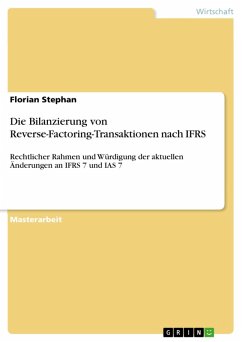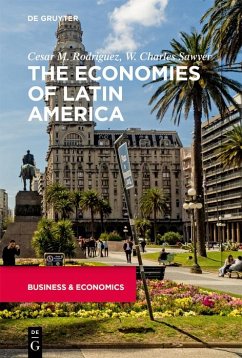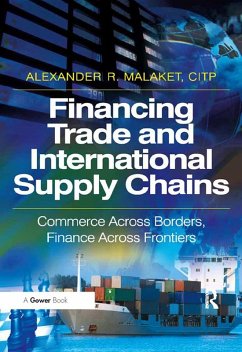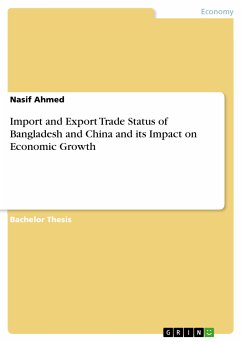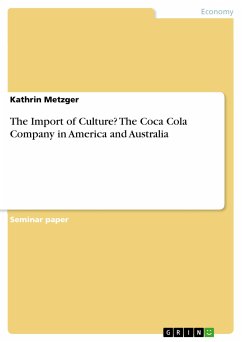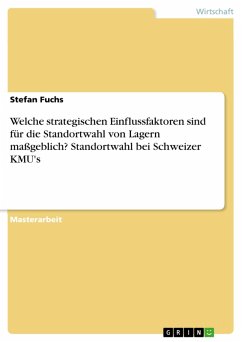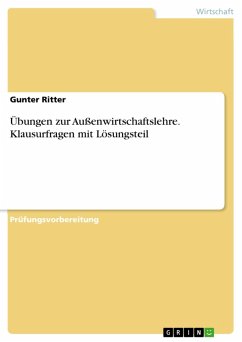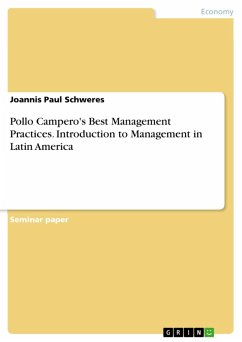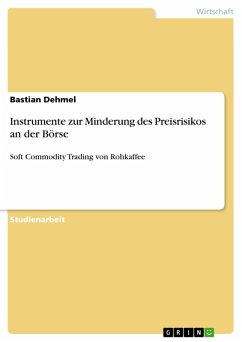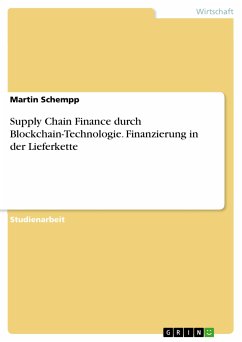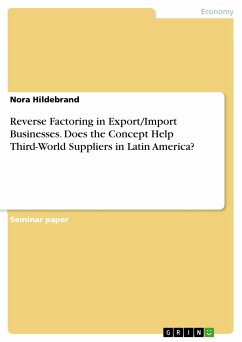
Reverse Factoring in Export/Import Businesses. Does the Concept Help Third-World Suppliers in Latin America? (eBook, PDF)
Sofort per Download lieferbar
Statt: 18,95 €**
16,99 €
inkl. MwSt. und vom Verlag festgesetzt.
**Preis der gedruckten Ausgabe (Broschiertes Buch)
Alle Infos zum eBook verschenkenWeitere Ausgaben:

PAYBACK Punkte
0 °P sammeln!
**Preis der gedruckten Ausgabe (Broschiertes Buch)
Seminar paper from the year 2020 in the subject Business economics - Trade and Distribution, grade: 1,3, University of Applied Sciences Mainz, language: English, abstract: Reverse factoring is regarded as one of the most promising alternative financing solutions from which both SMEs in developing countries and MNCs can take advantage. With this method, potentially risky suppliers from the Third World can obtain low-interest working capital financing. Nevertheless, reverse factoring can also have some disadvantages in practice. The aim of this paper is to examine whether the use of reverse fact...
Seminar paper from the year 2020 in the subject Business economics - Trade and Distribution, grade: 1,3, University of Applied Sciences Mainz, language: English, abstract: Reverse factoring is regarded as one of the most promising alternative financing solutions from which both SMEs in developing countries and MNCs can take advantage. With this method, potentially risky suppliers from the Third World can obtain low-interest working capital financing. Nevertheless, reverse factoring can also have some disadvantages in practice. The aim of this paper is to examine whether the use of reverse factoring helps Latin America based suppliers in terms of their development and business success. The further course of the study is organized as follows. The subsequent chapter provides a conceptual framework of reverse factoring. This includes a brief introduction to supply chain finance as well as accounts receivable purchase. Chapter three describes the current developments as well as the regulatory environment of reverse factoring in Latin America and gives some practical examples. After that, Chapter four discusses the benefits and constraints of reverse factoring. Finally, Chapter five provides a final conclusion and gives an answer to the main question of this paper.
Dieser Download kann aus rechtlichen Gründen nur mit Rechnungsadresse in A, B, BG, CY, CZ, D, DK, EW, E, FIN, F, GR, HR, H, IRL, I, LT, L, LR, M, NL, PL, P, R, S, SLO, SK ausgeliefert werden.




